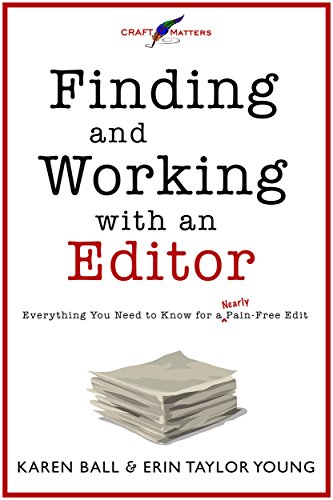Actually, the title was a bit of click-bait to entice aspiring authors and platform builders to open this post.
Sorry.
Getting started in social media is not a problem. It’s as simple as 1-2-3 and grade school children around the world do it every day. If you are having trouble getting started in social media, it could be your rotary-dial phone, thirty-year-old modem and Commodore 64 computer are not up to the challenge.
So, what is the problem with authors and social media?
Ideas. Stuff to post.
The challenge using social media for marketing platforms is about the material authors put into it.
I call it a “message platform.” I’ve written and spoken about this before, so let me summarize what it is.
A message platform is the core message or approach which permeates everything you do. No one is good at everything, so you focus on themes and a style or approach which make you unique.
Your life, personality, education, training and work all lead you in a certain direction and make your message platform relatively easy to uncover. Most successful authors embrace it. Some authors may actually fight it. Message platforms should be broad enough to allow for creative freedom and narrow enough to keep your readers engaged.
When social media entered the world of author platforms, it demanded content posted on a regular basis which was meaningful, creative and consistent with a core message and approach.
Normally, this doesn’t involve posting a picture of your lunch, a selfie sitting in an airplane seat annoyed at a late flight or a rant about some government policy, unless of course you are a chef, pilot or social commentator, then we expect it from you.
Later this summer I’ll be doing a continuing session spread over three workshops at the Greater Philadelphia Christian Writer’s Conference (July 26-28) on the issue of writing non-fiction.
Instead of speaking on the craft of writing, we’ll be working through all the issues around writing a successful book, except for the actual writing.
The first discussion will be message platform, which is built on author self-awareness. I see far too many proposals from aspiring authors who feel they can and should write whatever comes to mind, regardless of the fact the book isn’t consistent with who they are.
Sure, it’s a free country. But total creative freedom probably won’t make you a financially successful author. You need to be known for something.
Writing could be compared to people who build a home or building. Those who dig a foundation, build forms and pour concrete walls with perfect corners do not have the same personality and ability as those who build intricate interior woodwork with perfect corners.
Know what you do well and do it very, very well. That’s the message platform carried over into your social media posts.
More than likely, once you embrace the concept, you will find it neither creatively limiting or dissatisfying. Focus is often energizing to a writer.
Remember, social media is simply another form of media. You adapt to the specific styles and users of each, just like you might modify your approach slightly for television, radio, magazines, newspapers or newsletters.
Twitter, Facebook, Instagram, LinkedIn, blogging, email newsletters, or whatever else you use, have unique user characteristics. Each social media platform, like all the other more traditional media before them are unique in their audience and use. One-size-fits-all might work for tube socks, but not communication.
Yes, you can ignore everything here and build some kind of author platform posting what you want, when you want and to whoever might read it.
But if you want to be a successful small business, which is what a successful author is, then you need to be known for something and do it well.
Almost always it involves focus, boundaries and discipline, three things creative people don’t always embrace. If you don’t recognize your own message platform, sometimes you just need to ask a friend to help you see what you already know in your heart.
Here’s a post from a year ago on identifying your own message platform.



 Editors: Friend or Foe?
Editors: Friend or Foe?

I need this message. I’ve been resisting a platform. Perhaps this new outlook will help.
Aww, Sharon, I’ll pray it does for you! Which social media platform do you think you’d be most comfortable with?
The platform you build should welcome others to step up and join you, hang out, and enjoy the view.
Make it a place of grace.
Thanks, Andrew, for your comment about others and making the platform “a place of grace.” By the way, what kind of dog do you have? The small pic looks like a blue heeler(sp?). If so, we also have one–our third. What great dogs they are!
Sharon, thank you, and yes, that’s a Heeler. We have three, a blue and two reds, all female. They run the household. We have a number of other dogs, as well, and they do not challenge the Heeler Triumvirate.
Heelers are great dogs!! A Heeler/Australian Shepherd mix is pretty cool too.
Tisha, yes! We also have an Aussie, and thinking of that combination…kind of delightful, and just a bit scary.
Bossier than ever!
I’ve been to the Philly conference twice. Might be time to go again. Thanks, Dan for the preview of this coming attraction.
Dan, I am wondering if it is possible to have two platforms. I have been helping my elderly father with his care for almost four years, and have a blog on that. I have been teaching college for 12 years and have a different blog on that. Would that be spreading myself too thin?
Sherri, I’m not Dan, but I had an idea you might want to consider… First, do you feel like you’re spreading yourself too thin?
How can you combine your two blogs’ brands? Both are about “living life” so what common thread can you find to bring the two together? Create one tagline or theme that you write about…?
I’m probably totally off base … wondering what Dan has to say too.
Dan, it was super encouraging to read that we need to embrace focus, boundaries, and discipline. After getting heavily involved with my platform the last half year, it’s been neat to see how those things you mentioned have played a large role in what I’ve been learning. Figuring out your “brand” is not an easy walk in the park—it’s a rocky, uphill climb—and I found discussing it with friends on Facebook helped me strengthen my brand/message. And now, everything that I post across social media seeks to stay within the message of why, what, and how I write and who I write for.
By the way, your nonfiction session at Greater Philadelphia Writers Conference sounds wonderful! Will you have the chance to present it closer to the Midwest, at Write to Publish maybe?
My agency colleague and friend Bob Hostetler is the king of Write to Publish this year. I wouldn’t want to upstage him.
🙂
I’ll be at WTP this year and participating in a number of ways.
No … no, wouldn’t want to do that! 😉
Love your dedication, Rebekah! And I checked out your blog—followed it, too, because I liked it!